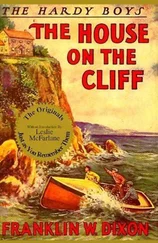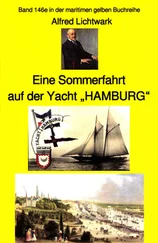Frank Stockton - Mrs. Cliff's Yacht
Здесь есть возможность читать онлайн «Frank Stockton - Mrs. Cliff's Yacht» — ознакомительный отрывок электронной книги совершенно бесплатно, а после прочтения отрывка купить полную версию. В некоторых случаях можно слушать аудио, скачать через торрент в формате fb2 и присутствует краткое содержание. Издательство: Иностранный паблик, Жанр: foreign_prose, на английском языке. Описание произведения, (предисловие) а так же отзывы посетителей доступны на портале библиотеки ЛибКат.
- Название:Mrs. Cliff's Yacht
- Автор:
- Издательство:Иностранный паблик
- Жанр:
- Год:неизвестен
- ISBN:нет данных
- Рейтинг книги:4 / 5. Голосов: 1
-
Избранное:Добавить в избранное
- Отзывы:
-
Ваша оценка:
- 80
- 1
- 2
- 3
- 4
- 5
Mrs. Cliff's Yacht: краткое содержание, описание и аннотация
Предлагаем к чтению аннотацию, описание, краткое содержание или предисловие (зависит от того, что написал сам автор книги «Mrs. Cliff's Yacht»). Если вы не нашли необходимую информацию о книге — напишите в комментариях, мы постараемся отыскать её.
Mrs. Cliff's Yacht — читать онлайн ознакомительный отрывок
Ниже представлен текст книги, разбитый по страницам. Система сохранения места последней прочитанной страницы, позволяет с удобством читать онлайн бесплатно книгу «Mrs. Cliff's Yacht», без необходимости каждый раз заново искать на чём Вы остановились. Поставьте закладку, и сможете в любой момент перейти на страницу, на которой закончили чтение.
Интервал:
Закладка:
"Well, next to that is the little house inhabited by a family named Barnard, I'm told, and next to that there's a large corner lot with an old house on it that's for sale. Now then, if I was you, I'd buy that corner lot and clear away the old house, and I'd build my dining-room right there. I'd get a good architect and let him plan you a first-class, A number one, dining-room, with other rooms to it, above it and below it, and around it; with porticos, and piazzas, and little balconies to the second story, and everything that anybody might want attached to a first-class dining-room."
Mrs. Cliff laughed. "But what good would it be to me away up there at the corner of the next street?"
"The reason for putting it there," said Burke, "is to get clear of all the noise and dirt of building, and the fuss and bother that you dislike so much. And then when it was all finished, and painted, and papered, and the carpets down, if you like, I'd have it moved right up here against your house just where you want it. When everything was in order, and you was ready, you could cut a door right through into the new dining-room, and there you'd be. They've got so in the way of slidin' buildings along on timbers now that they can travel about almost like the old stage coaches, and you needn't have your cellar dug until you're ready to clap your new dining-room right over it."
Mrs. Cliff smiled, and Willy listened with open eyes. "But how about the Barnard family and their house?" said she.
"Oh, I'd buy them a lot somewhere else," said he, "and move their house. They wouldn't object if you paid them extra. What I'd have if I was in your place, Mrs. Cliff, would be a clear lot down to the next street, and I'd have a garden in it with flowers, and gravel walks, and greenhouses, and all that sort of thing."
"All stretching itself out in the sunshine under the new dining-room windows!" cried Willy Croup, with sparkling eyes.
Mrs. Cliff sat and considered, a cheerful glow in her veins. Here, really, was an opportunity of stemming the current of her income without shocking any of her social instincts!
CHAPTER VIII
MR. BURKE BEGINS TO MAKE THINGS MOVE IN PLAINTON
It was not long before Mr. Burke began to be a very important personage in Plainton. It was generally known that he intended to buy land and settle in the neighborhood, and as he was a rich man, evidently inclined to be liberal in his expenditures, this was a matter of great interest both in social and business circles.
He often drove out to survey the surrounding country, but when he was perceived several times standing in front of an old house at the corner of the street near Mrs. Cliff's residence, it was supposed that he might have changed his mind in regard to a country place, and was thinking of building in the town.
He was not long considered a stranger in the place. Mrs. Cliff frequently spoke of him as a valued friend, and there was reason to believe that in the various adventures and dangers of which they had heard, Mr. Burke had been of great service to their old friend and neighbor, and it was not unlikely that his influence had had a good deal to do with her receipt of a portion of the treasure discovered by the commander of the expedition.
Several persons had said more than once that they could not see why Mrs. Cliff should have had any claim upon this treasure, except, perhaps, to the extent of her losses. But if she had had a friend in camp, – and Mr. Burke was certainly a friend, – it was easy to understand why he would do the best he could, at a time when money was so plenty, for the benefit of one whom he knew to be a widow in straitened circumstances.
So Mr. Burke was looked upon not only as a man of wealth and superior tastes in regard to food and personal comfort, but as a man of a liberal and generous disposition. Furthermore, there was no pride about him. Often on his return from his drives, his barouche and pair, which Mr. Williams had obtained in Harrington for his guest's express benefit, would stop in front of Mrs. Cliff's modest residence; and two or three times he had taken that good lady and Willy Croup to drive with him.
But Mrs. Cliff did not care very much for the barouche. She would have preferred a little phaëton and a horse which she could drive herself. As for her horse and the two-seated wagon, that was declared by most of the ladies of the town to be a piece of absolute extravagance. It was used almost exclusively by Willy, who was known to deal with shops in the most distant part of the town in order that she might have an excuse, it was said, to order out that wagon and have Andrew Marks to drive her.
Of course they did not know how often Mrs. Cliff had said to herself that it was really not a waste of money to keep this horse, for Willy was no longer young; and if she could save her any weary steps, she ought to do it, and at the same time relieve a little the congested state of her income.
Moreover, Mr. Burke was not of an unknown family. He was quite willing to talk about himself, especially to Mr. Williams, as they sat and smoked together in the evening, and he said a good deal about his father, who had owned two ships at Nantucket, and who, according to his son, was one of the most influential citizens of the place.
Mr. Williams had heard of the Burkes of Nantucket, and he did not think any the less of the one who was now his guest, because his father's ships had come to grief during his boyhood, and he had been obliged to give up a career on shore, which he would have liked, and go to sea, which he did not like. A brave spirit in poverty coupled with a liberal disposition in opulence was enough to place Mr. Burke on a very high plane in the opinions of the people of Plainton.
Half a mile outside the town, upon a commanding eminence, there was a handsome house which belonged to a family named Buskirk. These people were really not of Plainton, although their post-office and railroad station were there. They were rich city people who came to this country place for the summer and autumn, and who had nothing to do with the town folks, except in a limited degree to deal with some of them.
This family lived in great style, and their coachman and footman in knee breeches, their handsome horses with docked tails, the beautiful grounds about their house, a feebly shooting fountain on the front lawn, were a source of anxious disquietude in the mind of Mrs. Cliff. They were like the skeletons which were brought in at the feasts of the ancients.
"If I should ever be obliged to live like the Buskirks on the hill," the good lady would say to herself, "I would wish myself back to what I used to be, asking only that my debts be paid."
Even the Buskirks took notice of Mr. Burke. In him they thought it possible they might have a neighbor. If he should buy a place and build a fine house somewhere in their vicinity, which they thought the only vicinity in which any one should build a fine house, it might be a very good thing, and would certainly not depreciate the value of their property. A wealthy bachelor might indeed be a more desirable neighbor than a large family.
The Buskirks had been called upon when they came to Plainton a few years before by several families. Of course, the clergyman, Mr. Perley, and his wife, paid them a visit, and the two Misses Thorpedyke hired a carriage and drove to the house, and, although they did not see the family, they left their cards.
After some time these and other calls were returned, but in the most ceremonious manner, and there ended the social intercourse between the fine house on the hill and the town.
As the Buskirks drove to Harrington to church, they did not care about the Perleys, and although they seemed somewhat inclined to cultivate the Thorpedykes, who were known to be of such an excellent old family, the Thorpedykes did not reciprocate the feeling, and, having declined an invitation to tea, received no more.
Читать дальшеИнтервал:
Закладка:
Похожие книги на «Mrs. Cliff's Yacht»
Представляем Вашему вниманию похожие книги на «Mrs. Cliff's Yacht» списком для выбора. Мы отобрали схожую по названию и смыслу литературу в надежде предоставить читателям больше вариантов отыскать новые, интересные, ещё непрочитанные произведения.
Обсуждение, отзывы о книге «Mrs. Cliff's Yacht» и просто собственные мнения читателей. Оставьте ваши комментарии, напишите, что Вы думаете о произведении, его смысле или главных героях. Укажите что конкретно понравилось, а что нет, и почему Вы так считаете.












